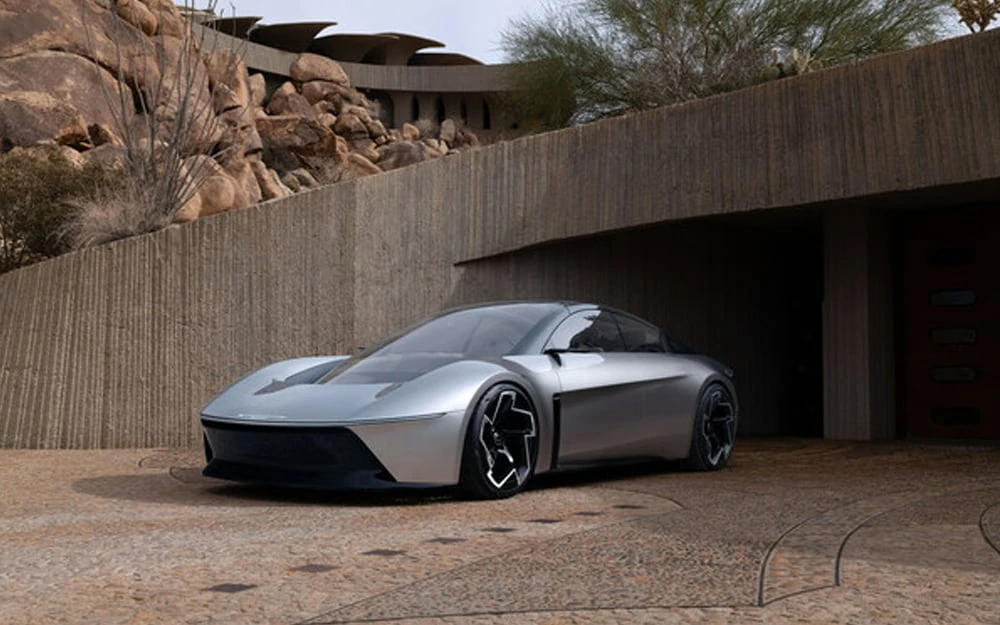Lyten announces its battery has been selected as the power source for the Chrysler Halcyon Concept. The Halcyon will incorporate Lyten’s lithium-sulfur EV batteries as part of its goal to achieve a lighter weight and longer range powered by batteries.
Chrysler’s announcement states the Halcyon “incorporates breakthrough Lyten 800V lithium-sulfur EV batteries that do not use nickel, cobalt or manganese, resulting in an estimated 60% lower carbon footprint than today’s best-in-class batteries and a pathway to achieve the lowest emissions EV battery on the global market.”
The lithium-sulfur technology offers a pathway for EV batteries with more than two times the energy density, and therefore up to half the weight, of today’s batteries, according to company officials. The battery chemistry requires no nickel, cobalt or manganese in the cathode and no graphite in the anode, allowing the lithium-sulfur battery to be fully sourced and manufactured locally in North America or Europe.
“Just as Halcyon exemplifies the fully electrified future of the Chrysler brand, we believe our lithium-sulfur batteries represent the future battery platform of electric vehicles, sourced through entirely local supply chains and manufactured in the U.S., Europe, and eventually around the globe.” said Dan Cook, Lyten CEO and co-founder. “We’ve been able to dramatically accelerate the development timeline of lithium-sulfur through the discovery and commercialization of our 3D Graphene innovation.”
In June 2023, Lyten opened its first automated lithium-sulfur battery production line in San Jose, California, running entirely on renewable power. The pilot line is producing lithium-sulfur cells in both cylindrical and pouch formats, utilizing the same equipment and manufacturing processes as traditional lithium-ion batteries.
In 2024 Lyten will begin delivering commercial cells for its non-EV and government customers, consistent with its a commitments for delivering this technology to the market.
Lyten has raised more than $410 million in funding to date, including investments from Stellantis, FedEx and Honeywell, officials said. The company is currently progressing plans for scaled up lithium-sulfur manufacturing to meet demand from the automotive, aerospace and defense sectors.
